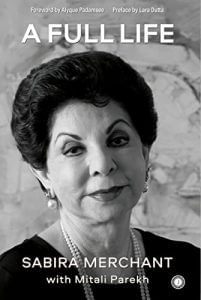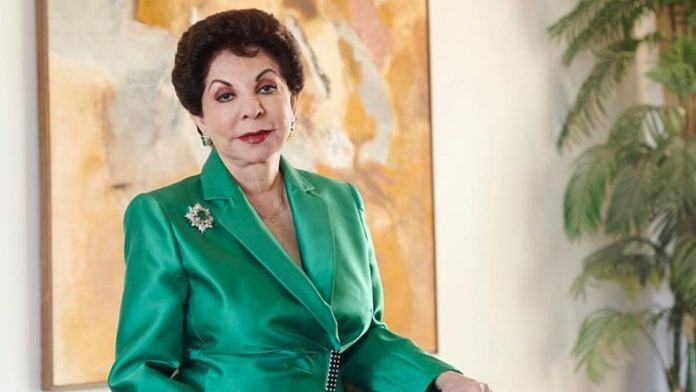Studio29 came out of a chance meeting of two strangers at a hair salon on a rainy afternoon. It was nothing less than sleight of hand by fate.
It was 1978 and I was at Patsy Leon’s in Tardeo. While I got my hair done, it rained so much that the streets were flooded and the water was waist-high. My dinky car was all but submerged. A wonderful Parsi lady, Daisy Vazifdar, who was also at the salon, offered me a ride in her SUV and we waited the downpour out at her Warden Road home. As we nibbled on akuri and toast, her husband made me the most extraordinary offer: “There is this hotel on Marine Drive, which is going to be leased,” said Jehangir. “We can’t bid for it because it belongs to an Islamic trust, and can only be leased to Muslims. Do you think you would like to go into business with me?”
Jehangir was certainly not in the habit of making business partners out of people he had just met, but he knew of me through TV and theatre, and was a highly astute businessman. He knew my reputation combined with my last name would win the members of the Islamic trust over.
I went home to discuss this with Chotu who had his reservations. He had never run a hotel before, and while I was ready to bulldoze ahead with my creative ideas for a sweet little hotel, he was concerned about the business side of it.
“You don’t worry about the daily running of the place,” reassured Jehangir, whose family owned Heritage Hotel in Byculla. He was a self-made man: an architect and a recognized artist, and like my late father-in-law Kaka-ji, an instinctive businessman. He didn’t live with his head in the clouds like so many creative people.
He and Chotu discussed things and eventually my husband got excited about trying his hand at something new. We became one of the first working couples of the day. It was not common for women to go to business meetings in those days, and just like my father so many years ago, Chotu realized what an asset I could be. When you bring your wife to a loan sanction meeting, it gives you an air of solidity. People see a couple who are working to better their lives and a family man always seems trustworthy.
We found it as easy to work together in business as we had in a romantic partnership. The key was to learn to compartmentalize and trust each other with the assigned roles. I would never interfere in the money aspect and he would leave me to my artistic devices.
While Jehangir and Chotu handled the business side, Jehangir’s son Phiroze, an architect, was with me to oversee the day-to-day running of the place. Phiroze is now a restauranteur in London and many cities in India, and the man behind Royal China, Jia and Kuai Kitchen in Mumbai.
The hotel, originally christened Dar-ul-Habib, was then called the Bombay International; it stands today as the Marine Plaza. And to tie up this gift from fate, we found that the building was designed by Bapaji, my biological father, as a hotel for those heading to or coming from Haj. He had even waived off his professional fees in service of the community.
The main clientele was Arabs who were drawn to the view of the sea and the glamour of living on the Queen’s Necklace in this pulsating city. We had a charming employee stationed at the airport who would entice the foreigners to check out our rooms (there were no Internet bookings, of course).
To keep the hotel looking fresh, we needed to touch up the paint often, and the man to go to for that was Farokh Messman, now better known as the father of Kainaz Messman (of Theobroma fame).
The business was doing well but I felt the place was not reaching its potential.
Around this time, Life magazine came out with an arresting cover: a woman in skin-tight, shiny pants dancing away under a headline that announced ‘Disco takes over’.
That grabbed my attention. ‘Disco’, the truncated version of ‘Discotheque’, formed an essential part of the zeitgeist of the period. Shiny clothes and accessories, dance music, a nightclub and the dance form—they were all ‘Disco’. But the discotheque at the Taj was decaying and the one at the Oberoi was getting weary too. Outside of five-star hotels, the only option was a seedy place where men went to get drunk. Bombay International was perfectly placed to host a high-class sort of place.
There was one hitch though: the only area it would fit into was the rounded corner on the ground floor. It needed to be a buzzing place that people could walk in and out of, and not have to use an elevator. But that would displace a very popular barber’s shop called The Wanderers. All of Marine Drive came to it and we weren’t sure whether Jehangir would like the idea of moving it. So, I was given the task of tackling him. I showed him the magazine and said, “Jehangir, let’s have a discotheque where the barber shop is. What do you think?” “But where will the band sit?” he asked me, incredulously. The idea of music coming through a machine instead of live musicians was still to catch on.
The solution was to raise The Wanderers to the first floor, in place of a few rooms which meant loss of revenue. But Jehangir was able to see our point that an accessible nightclub would easily make up for that loss and more.
So, we gave The Wanderers a new lease of life: plush white leather chairs, spotless white uniforms for the staff, a ceiling-to-floor wallpaper depicting a palm tree-lined sea shore, and moved it to the first floor. I also taught the staff soft skills such as how to greet the customers, make small talk while servicing them and how to remember their names.
There was one more hurdle: the place was owned by an Islamic Trust and drinking is taboo within the religion.
It was left to me to bell the cat: I met the trustees and told them about our idea for a nightclub. “And of course such places have to serve alcohol,” I slipped in, “we will not make any money otherwise.” They had their reservations, but they were not completely against it because they knew us as family people and were aware of my biological father’s piety.
 This excerpt from Sabira Merchant’s ‘A Full Life’ has been published with permission from Jaico Publishing House.
This excerpt from Sabira Merchant’s ‘A Full Life’ has been published with permission from Jaico Publishing House.



